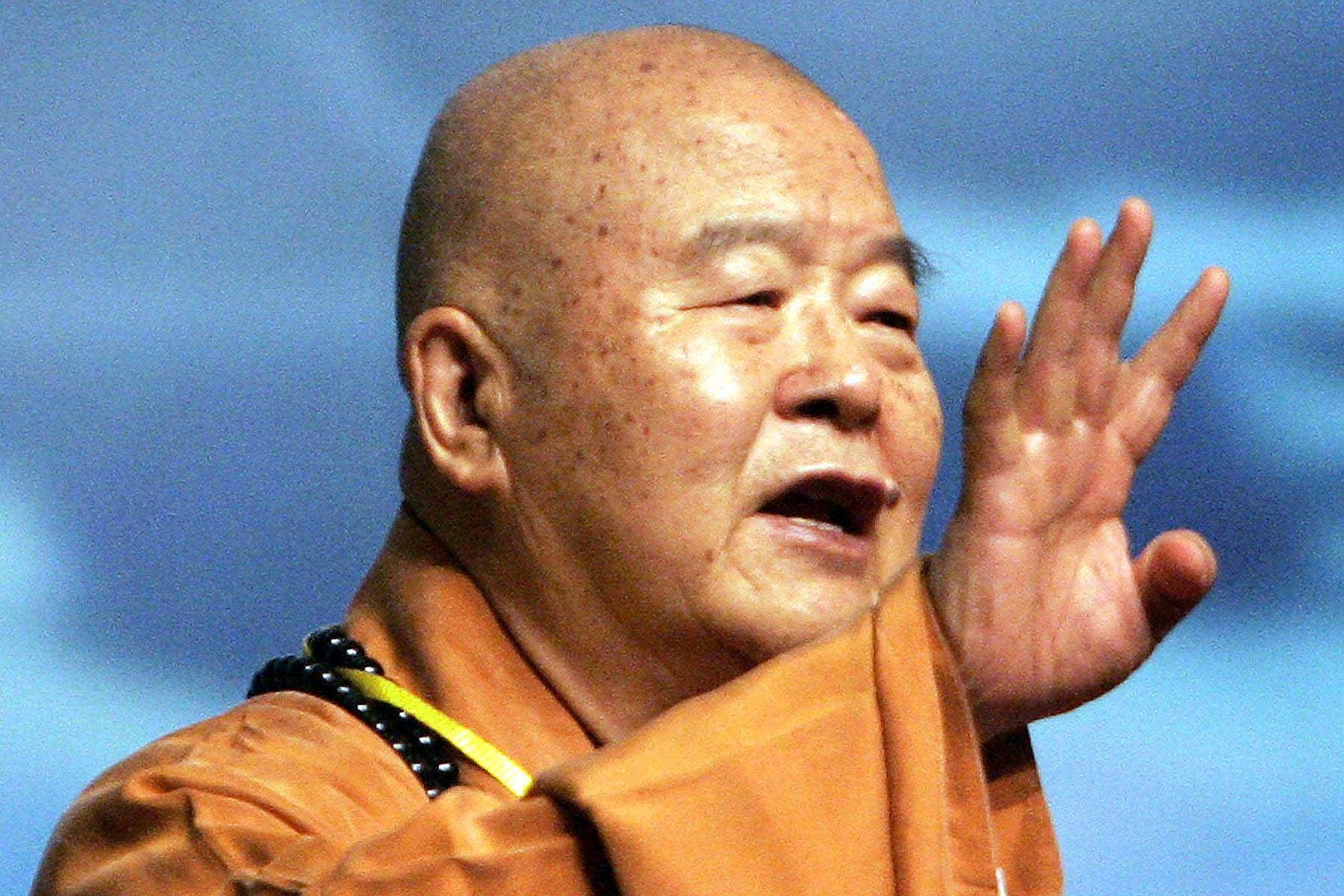Hsing Yun, Buddhist abbot who built universities, dies at 95
Buddhist abbot Hsing Yun, who established a thriving religious community in southern Taiwan and built universities overseas, has died

Your support helps us to tell the story
From reproductive rights to climate change to Big Tech, The Independent is on the ground when the story is developing. Whether it's investigating the financials of Elon Musk's pro-Trump PAC or producing our latest documentary, 'The A Word', which shines a light on the American women fighting for reproductive rights, we know how important it is to parse out the facts from the messaging.
At such a critical moment in US history, we need reporters on the ground. Your donation allows us to keep sending journalists to speak to both sides of the story.
The Independent is trusted by Americans across the entire political spectrum. And unlike many other quality news outlets, we choose not to lock Americans out of our reporting and analysis with paywalls. We believe quality journalism should be available to everyone, paid for by those who can afford it.
Your support makes all the difference.Hsing Yun, a Buddhist abbot who established a thriving religious community in southern Taiwan and built universities overseas, has died. He was 95.
He established Fo Guang Shan monastery in 1967, aiming to propagate Buddhist humanitarian values. It would go on to operate hundreds of temples and seminaries around the world, along with universities in the Taiwan, Australia, the U.S. and Philippines.
Hsing Yun died peacefully Sunday, Fo Guang Shan said. He had largely withdrawn from public life years ago following declining health and a series of strokes.
Born Lee Kuo-shen in mainland China’s Jiangsu province in 1927, Hsing Yun first developed an interest in Buddhism at age 12 while visiting a famous temple in the provincial capital Nanjing.
Hsing Yun moved to Taiwan as the officially atheist Communist Party swept to power on the mainland in 1949. He became a major donor to Buddhist institutions on the mainland and advocated exchanges between China and Taiwan.
That, and his own public comments, led some to label him an advocate of unification between Taiwan and China, although he maintained strong relations with politicians across the spectrum.
Following his passing, Taiwanese President Tsai Ing-wen and Premier Chen Chien-jen, whose Democratic Progressive Party favors Taiwan's independence, expressed their condolences and praised his lifetime of humanitarian work.